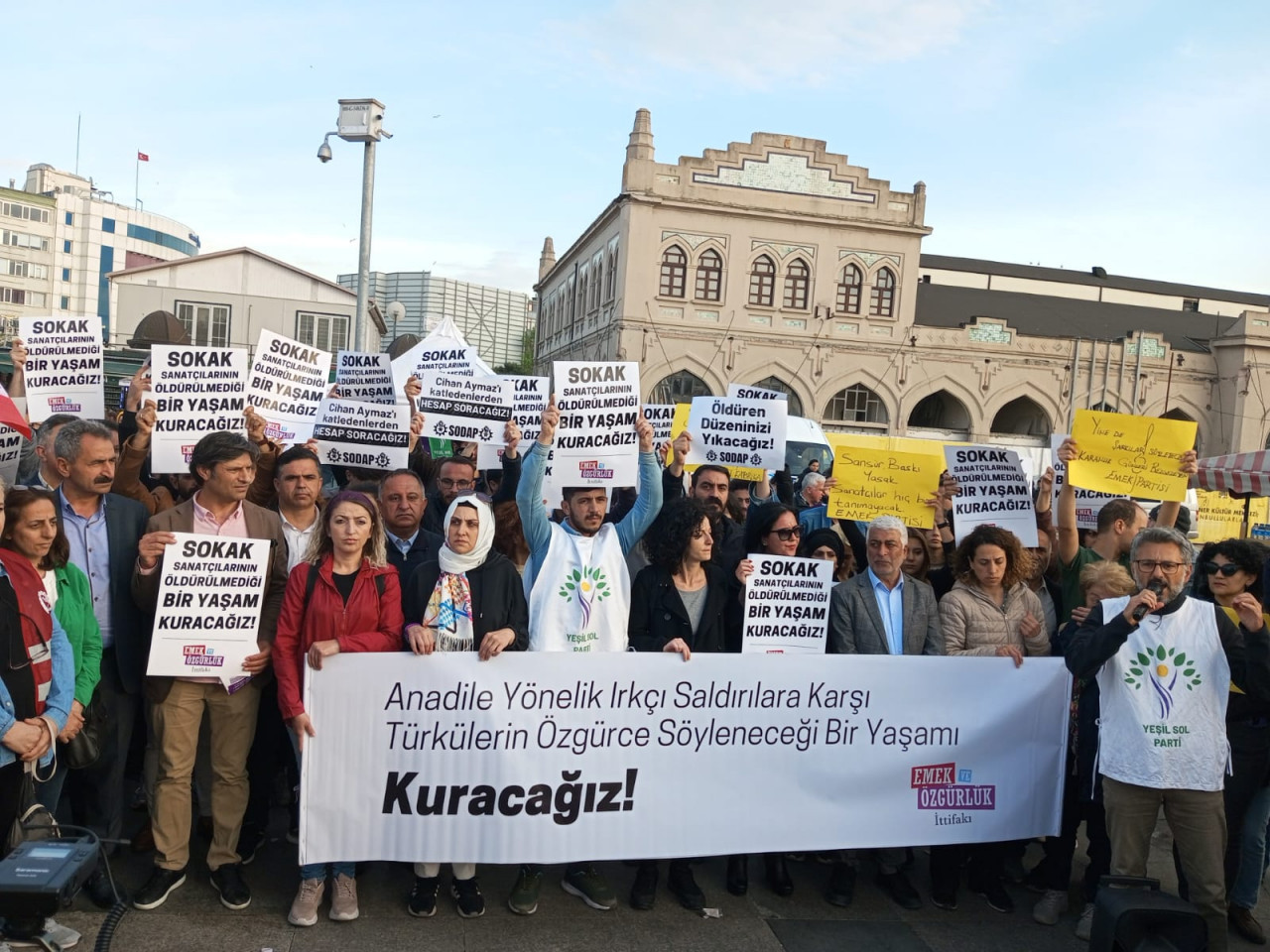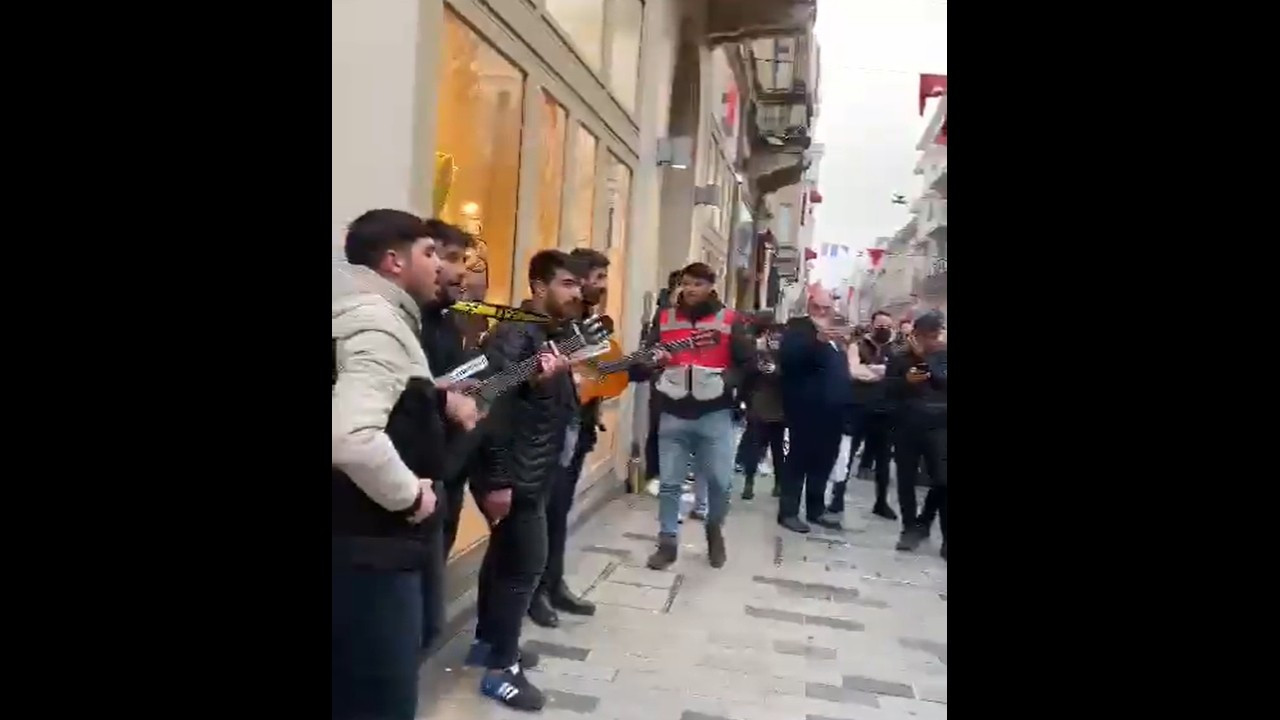Kurdish street musician killed for refusing nationalist song request in Istanbul
A man on May 3 stabbed Kurdish street musician Cihan Aymaz to death in the Kadıköy district of Istanbul on the pretext that the latter did not play the nationalist song the former requested. Aymaz's relatives said that the musician had faced a lawsuit over singing political songs and that they thought the murderer had racist motivations.
Duvar English
A man on May 3 fatally stabbed a Kurdish street musician by the name of Cihan Aymaz in Istanbul's Kadıköy district. The perpetrator's motive was reportedly due to Aymaz's refusal to play a nationalist song that the former requested. A Turkish court on May 3 arrested the murderer for "intentional killing" and sent him to prison.
Aymaz's family members stated that the musician had previously faced lawsuit for performing politically-charged songs, and they believe that the attacker's motives were racially motivated.
Aymaz on Jan. 30 had said in a street interview that he went to court due to an adaptation song he sang. He stated, "Even if I end up in prison, I will sing it again, there is no salvation for me," in the interview.
People’s Democratic Party (HDP) provincial co-chair Ferhat Encü said after the murder that "This is not an incident that took place over a simple response to a request, the suspect carried out this attack because our friend did not play the song 'I’d die for my Turkey' (Ölürüm Türkiyem). He also mentioned that Aymaz was a volunteer in the HDP.
Bu basit bir isteğe verilen bir cevap üzerine gerçekleşen bir olay değil, zanlı bu arkadaştan “ölürüm Türkiye” parçasını çalmadığı için bu saldırıyı gerçekleştirmiştir. Dolaysıyla bu bir ırkçı cinayettir. Cihan Aymaz bizim gönüllü parti çalışanımızdır. Olayın takipçisi olacağız. https://t.co/36lkJrFlUZ
— Ferhat Encu (@FerhatEncu) May 3, 2023
The aforementioned song is a piece of nationalist folk music popular among ultra-nationalist groups such as Gray Wolves.
The leftist opposition bloc Labor and Freedom Alliance, which includes the HDP, on May 4 released a press statement for the murdered musician at his death scene. The statement pointed out that Yılmaz had been a street performer in Kadıköy for years and had been singing Kurdish songs. Aymaz’s family members once again stated here that the musician was attacked because of his Kurdish identity.
The protesters concluded, “We will raise the struggle until the melodies of all languages and cultures are played and sung freely in these streets and squares."


 Kurdish citizens at the target of racist attacks in Bodrum and BursaHuman Rights
Kurdish citizens at the target of racist attacks in Bodrum and BursaHuman Rights Four special operations policemen probed for battering youth wearing traditional Kurdish clothes in MardinHuman Rights
Four special operations policemen probed for battering youth wearing traditional Kurdish clothes in MardinHuman Rights Three Turkish police officers arrested for torturing child in southeastern DiyarbakırHuman Rights
Three Turkish police officers arrested for torturing child in southeastern DiyarbakırHuman Rights Istanbul police prevent street musicians from singing in Kurdish on İstiklal StreetDomestic
Istanbul police prevent street musicians from singing in Kurdish on İstiklal StreetDomestic